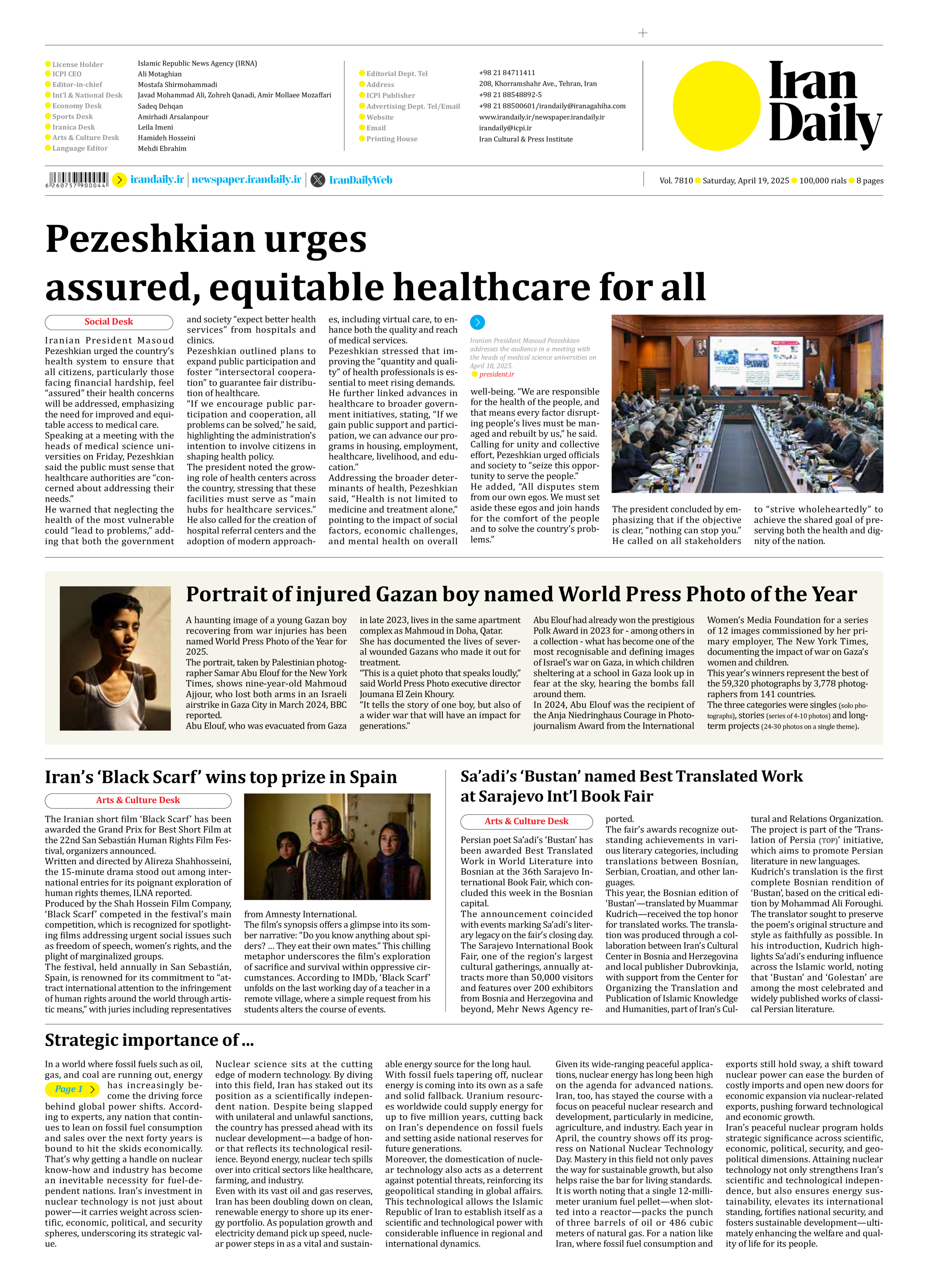
Strategic importance of ...
Page 1
In a world where fossil fuels such as oil, gas, and coal are running out, energy has increasingly become the driving force behind global power shifts. According to experts, any nation that continues to lean on fossil fuel consumption and sales over the next forty years is bound to hit the skids economically. That’s why getting a handle on nuclear know-how and industry has become an inevitable necessity for fuel-dependent nations. Iran’s investment in nuclear technology is not just about power—it carries weight across scientific, economic, political, and security spheres, underscoring its strategic value.
Nuclear science sits at the cutting edge of modern technology. By diving into this field, Iran has staked out its position as a scientifically independent nation. Despite being slapped with unilateral and unlawful sanctions, the country has pressed ahead with its nuclear development—a badge of honor that reflects its technological resilience. Beyond energy, nuclear tech spills over into critical sectors like healthcare, farming, and industry.
Even with its vast oil and gas reserves, Iran has been doubling down on clean, renewable energy to shore up its energy portfolio. As population growth and electricity demand pick up speed, nuclear power steps in as a vital and sustainable energy source for the long haul.
With fossil fuels tapering off, nuclear energy is coming into its own as a safe and solid fallback. Uranium resources worldwide could supply energy for up to five million years, cutting back on Iran’s dependence on fossil fuels and setting aside national reserves for future generations.
Moreover, the domestication of nuclear technology also acts as a deterrent against potential threats, reinforcing its geopolitical standing in global affairs. This technological allows the Islamic Republic of Iran to establish itself as a scientific and technological power with considerable influence in regional and international dynamics.
Given its wide-ranging peaceful applications, nuclear energy has long been high on the agenda for advanced nations. Iran, too, has stayed the course with a focus on peaceful nuclear research and development, particularly in medicine, agriculture, and industry. Each year in April, the country shows off its progress on National Nuclear Technology Day. Mastery in this field not only paves the way for sustainable growth, but also helps raise the bar for living standards.
It is worth noting that a single 12-millimeter uranium fuel pellet—when slotted into a reactor—packs the punch of three barrels of oil or 486 cubic meters of natural gas. For a nation like Iran, where fossil fuel consumption and exports still hold sway, a shift toward nuclear power can ease the burden of costly imports and open new doors for economic expansion via nuclear-related exports, pushing forward technological and economic growth.
Iran’s peaceful nuclear program holds strategic significance across scientific, economic, political, security, and geopolitical dimensions. Attaining nuclear technology not only strengthens Iran’s scientific and technological independence, but also ensures energy sustainability, elevates its international standing, fortifies national security, and fosters sustainable development—ultimately enhancing the welfare and quality of life for its people.







